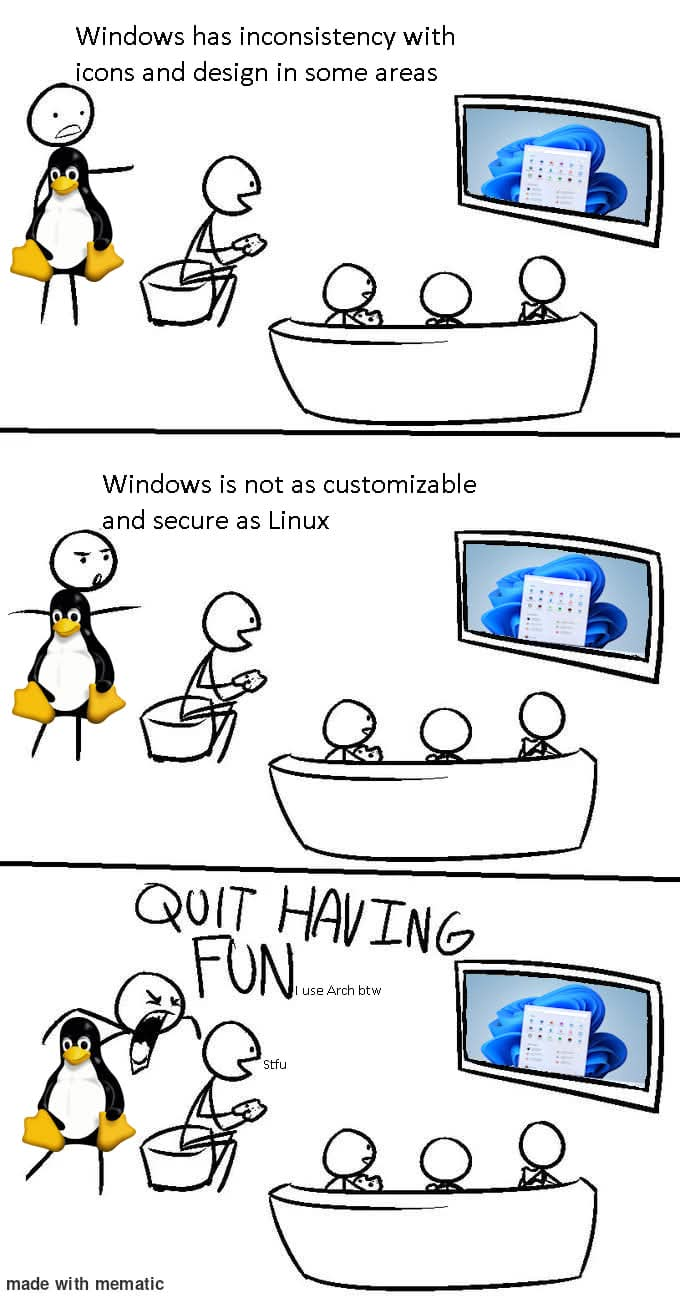this post was submitted on 26 Nov 2024
-30 points (41.1% liked)
196
16710 readers
2089 users here now
Be sure to follow the rule before you head out.
Rule: You must post before you leave.
founded 2 years ago
MODERATORS
you are viewing a single comment's thread
view the rest of the comments
view the rest of the comments

linux "secure" lol
It’s open source, which in this case means a lot of people are working on it, and it is used on internet-facing computers, which means it can’t hide behind a residential firewall so has to be secure against every attack imaginable.
So yeah, the fact that is called merely “secure” is indeed lol, it should have been called “ultra mega super max secure”.
This is a seriously ironic take coming from someone whose username is a reference to the biggest breach of Linux security in history and the ease with which the trust needed to pull it off was gained
https://madaidans-insecurities.github.io/linux.html
Bro/sis/enby read a random aah article and concluded that every sysadmin in the world is wrong 💀
This article is just one of several articles that cite vulnerabilities that GNU/Linux has. Open source is something I advocate but I am aware that the mere fact that a software is open source does not guarantee that it is secure. Many eyes checking the code did not prevent the xz Utils backdoor from being included in several distributions. The monolithic kernel is also problematic every day, more and more lines of code are added, further increasing the attack surface, among others. Just to name a few